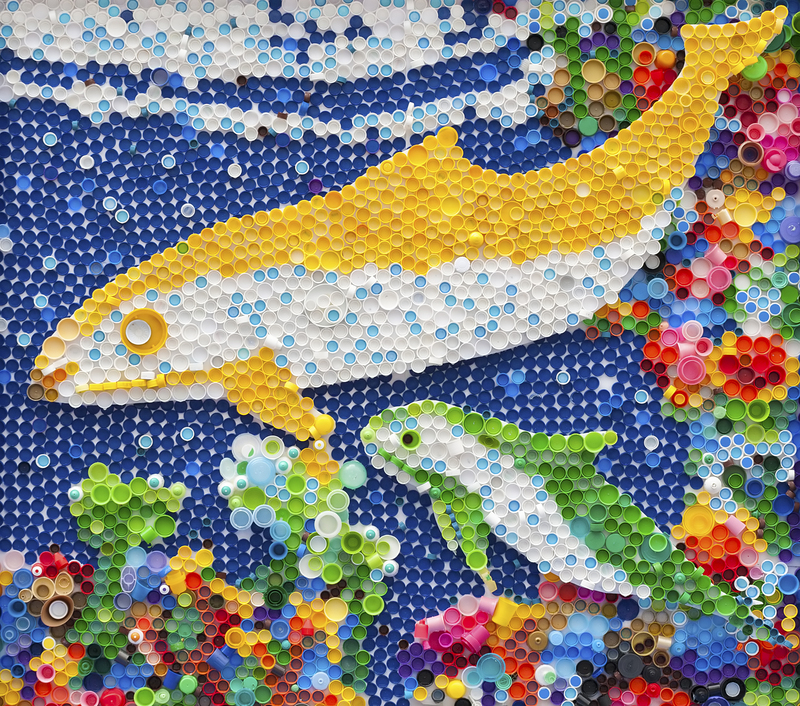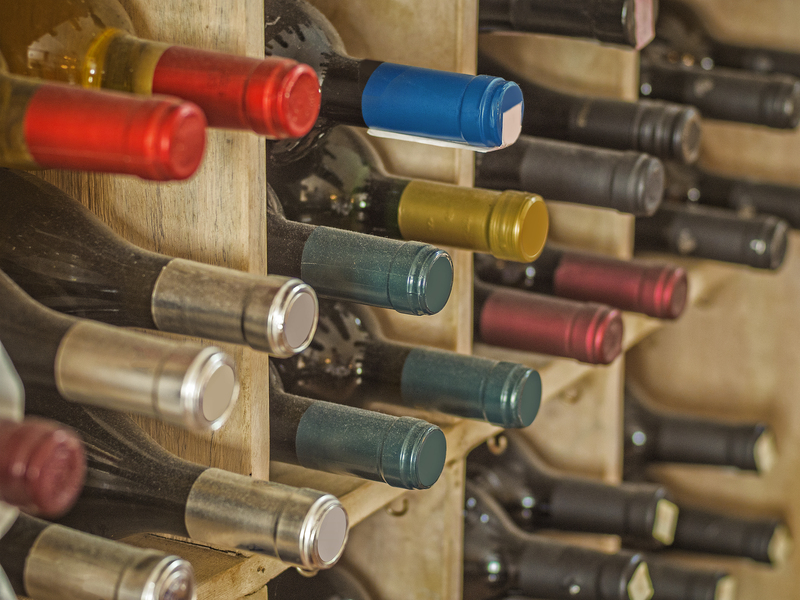The Artful Conversion of Plastic Waste through Recycling: A Comprehensive Guide
Plastic pollution has emerged as one of the defining environmental challenges of the 21st century. While plastic has revolutionized industries and improved the quality of life, its resilience has become a double-edged sword, especially due to its long degradation time in nature. The artful conversion of plastic waste through recycling presents itself as a beacon of hope, offering sustainable solutions to combat this global crisis.

Understanding Plastic Waste: A Modern Dilemma
Every year, humanity produces more than 300 million tons of plastic, a staggering portion of which becomes waste. Only about 9% of plastic waste generated globally is recycled, while the rest finds its way into landfills, incinerators, or, alarmingly, our oceans. The ramifications are devastating--marine life suffers, toxic chemicals leach into the soil and water, and microplastics infiltrate food chains.
- Single-use plastics comprise the majority of plastic waste.
- Recycling practices and regulations vary widely across countries and municipalities.
- Innovative recycling technologies offer hope for higher value conversion processes.
This scenario underscores the critical need for transformative approaches to recycling plastic waste, going beyond traditional methods. It's time to explore the artful side of plastic recycling--where science, innovation, and creativity unite to forge a sustainable path.
The Fundamentals of Plastic Waste Recycling
What is Plastic Recycling?
Plastic recycling refers to the process of recovering scrap or waste plastics and reprocessing them into useful products. Unlike downcycling, which results in products of lesser quality, artful plastic recycling aims for upcycling--transforming waste into materials of equal or higher value. The main types of plastics that commonly enter recycling streams include PET (polyethylene terephthalate), HDPE (high-density polyethylene), PVC (polyvinyl chloride), LDPE (low-density polyethylene), and PP (polypropylene).
Stages in the Plastic Recycling Process
- Collection: Plastics are gathered from households, businesses, and public spaces through curbside pickups or recycling centers.
- Sorting: Recyclable plastics are separated from non-recyclables and further categorized by polymer type and color using manual or automated systems.
- Cleaning: Residue, labels, adhesives, and contaminants are washed off to improve material quality.
- Shredding: Plastics are broken down into small flakes or pellets for easier handling.
- Reprocessing: The cleaned plastic flakes are melted and reshaped into new products or materials, ready for reuse.
Advanced Artful Approaches to Transforming Plastic Waste
Mechanical Recycling: The Traditional Route
Mechanical recycling is the most established plastic waste recycling technique. Here, plastics are physically processed without altering their chemical structure. Shredded, washed, and melted, they are turned into new consumer goods such as containers, bins, textiles, and packaging. However, mechanical recycling can sometimes degrade the quality of plastics, leading to downcycling. The artful conversion, in this context, requires attention to:
- Preserving polymer integrity through gentle processing methods.
- Improving sorting accuracy to minimize contamination.
- Innovative design for recyclability in products.
Chemical Recycling: Breaking Down at the Molecular Level
Chemical recycling represents a breakthrough in the conversion of post-consumer plastic waste. Technologies such as pyrolysis, depolymerization, and solvolysis break plastics down into their basic monomers or other valuable chemicals. These can be used to manufacture new, virgin-equivalent plastics or alternative fuels. The major advantages of chemical recycling are:
- Closing the loop for mixed or contaminated plastics not suitable for mechanical recycling.
- Delivering higher-quality output materials.
- Reducing dependency on fossil resources for new plastics.
Artful chemical recycling is an innovative solution to transform plastic waste into a sustainable resource, playing an essential role in a circular economy.
The Role of Upcycling: Elevating Plastic's Value
Upcycling, sometimes seen as the most artful aspect of plastic waste conversion, involves transforming discarded plastics into products of greater aesthetic, functional, or economic value. Think of eco-friendly fashion lines made from ocean plastic, or architectural materials crafted from recycled plastic bricks.
- Designers create high-end products from post-consumer plastics.
- Artisans upcycle plastic waste into jewelry, artwork, and decor.
- Engineers innovate with construction materials, such as durable plastic composites for building roads and homes.
Emergent Technologies in Artistic Plastic Waste Conversion
Recent developments in plastic recycling technologies provide promising avenues for more creative and effective conversion. These include:
- Enzyme-based recycling, which uses engineered enzymes to selectively break down plastics.
- Bio-based polymers which can be composted or recycled in closed loops.
- Solvent-based purification, which physically dissolves plastics to purify and then recover them without significant property loss.
Such technologies offer unprecedented flexibility in managing plastic waste streams, advancing the artful conversion of plastic waste through recycling.
The Benefits of Artful Plastic Waste Recycling
Environmental Impact Reduction
By recycling plastic waste artfully and efficiently, we can significantly reduce plastic pollution and conserve resources. Key environmental benefits include:
- Prevention of land and marine pollution: Reducing the volume of plastic entering natural ecosystems.
- Resource Conservation: Lessening demand for crude oil and raw materials.
- Energy Savings: Recycling plastics typically uses less energy compared to producing new materials.
- Lower Carbon Footprint: Reduced greenhouse gas emissions compared to landfilling or incinerating plastics.
Economic and Social Advantages
The artful transformation of plastic waste not only addresses environmental problems but also encourages economic opportunities:
- Job Creation: The recycling industry and upcycling initiatives generate employment at every step, from collection to manufacturing.
- Economic Value: Plastic waste becomes a resource for new products and materials, stimulating innovation and entrepreneurship.
- Social Impact: Artistic upcycling initiatives raise awareness, foster community engagement, and inspire behavioral change toward sustainability.
Innovative Case Studies in Artful Plastic Waste Recycling
The Rise of Ocean Plastic Art
Around the globe, artists and environmentalists are collaborating to retrieve plastic waste from oceans and beaches, transforming it into powerful art installations and functional items. For instance, projects like The Ocean Cleanup collect tons of marine plastic, which is then converted into designer sunglasses or public sculptures, highlighting the creative conversion of plastic debris into valuable products.
Eco-Conscious Fashion from Recycled Plastics
Brands such as Adidas and Patagonia have pioneered the use of recycled plastic bottles to produce shoes, clothing, and accessories. These fashion items symbolize not just trendiness but also a commitment to sustainability and circularity in design. Such initiatives vividly illustrate the potential of artful recycling of plastic waste to inspire global change.
Building Blocks: Plastic Waste as Construction Material
Innovators in Africa, South America, and Asia are developing building blocks, pavers, and even entire homes from recycled plastic waste. These materials are durable, lightweight, waterproof, and can withstand harsh weather conditions--demonstrating the unique strength of creative plastic waste conversion.
Challenges in the Artful Conversion of Plastic Waste
Contamination and Sorting Issues
The quality of recycled plastic is heavily dependent on the purity of the waste stream. Contaminants, mixed materials, and poor sorting can undermine the integrity of the final product, making recycling less cost-effective. Investments in advanced sorting technologies and public education are essential to overcome this hurdle.
Material Degradation
Some plastics can degrade with each recycling cycle, losing their physical and chemical properties. While chemical and enzymatic recycling offers a solution to this, high costs and infrastructure gaps pose significant challenges.
Economic Constraints
Recycling and upcycling can sometimes be less competitive than producing new plastics from virgin materials, particularly in regions with low oil prices or limited market demand for recycled products. Financial incentives, policy support, and consumer awareness campaigns are instrumental in shifting this paradigm.
Best Practices for Effective Plastic Waste Conversion
- Design for recyclability: Encourage manufacturers to use single polymer types, avoid hazardous additives, and clearly label plastic products.
- Support innovative recycling technologies: Invest in R&D and infrastructure for chemical and enzymatic recycling advancements.
- Promote consumer education: Engage the public in proper sorting, cleaning, and recycling habits through community programs and campaigns.
- Encourage upcycling initiatives: Where possible, transform plastic waste into art, fashion, or construction materials to boost value and sustainability.
- Create circular economies: Facilitate closed-loop supply chains where plastics are perpetually reused, remanufactured, and upcycled.

How Individuals Can Contribute to Plastic Waste Recycling
- Practice responsible consumption: Choose recyclable packaging and avoid single-use plastics.
- Sort and clean your plastic waste: Ensure recyclables are free from food residues or non-recyclable materials.
- Support recycled and upcycled products: Purchase goods made from post-consumer plastics, boosting demand for recycled materials.
- Participate in community clean-ups and recycling drives: These initiatives help reduce pollution and inspire others.
- Advocate for systemic change: Support policies and companies committed to closing the plastic loop.
The Promising Future of Plastic Waste Conversion
The journey towards artful conversion of plastic waste through recycling is both a necessity and an opportunity. With emerging technologies, increased awareness, and a fusion of creativity and science, the future holds immense promise. By embracing innovative recycling and upcycling methods, humans can transform plastic waste into valuable resources, mitigate environmental damage, and pave the way for a truly sustainable society.
In conclusion, the artful conversion of plastic waste through recycling transforms a daunting challenge into a source of inspiration and value. By working collaboratively--as individuals, businesses, and governments--we can create a cleaner planet, drive positive economic change, and demonstrate that with ingenuity, even pollution can become a resource for good.